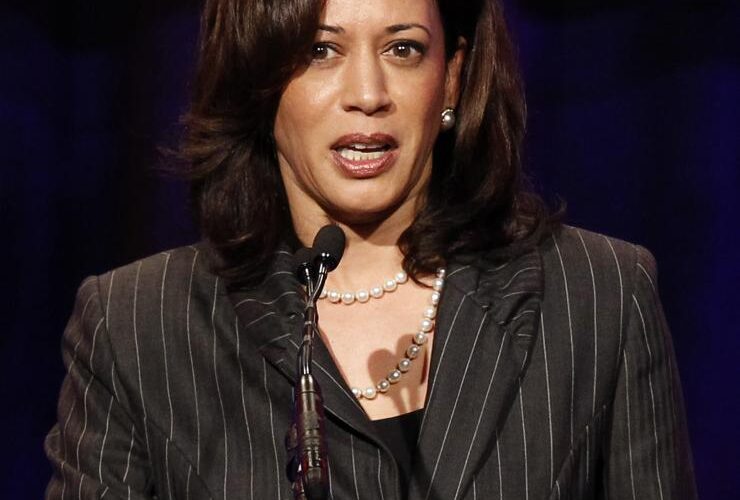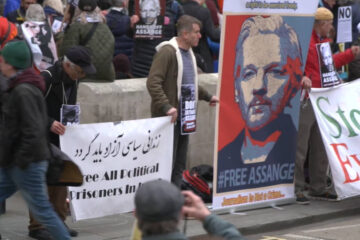Photo: Ibtimes.com
Vice President Kamala Harris is traveling to Guatemala on June 8 to meet with President Alejandro Giammattei.
Harris and others in the Biden administration have repeatedly stressed the need to improve governance in the region, but Guatemala’s recent crackdown on anti-corruption prosecutors and threatened restrictions on NGOs in the country bode ill for reform. As the government of Guatemala prepares to welcome Harris and to discuss new agreements related to migration, US investment, and aid, the Guatemalan government, instead of addressing corruption, is attacking those central to the fight against it.
On May 19, Juan Francisco Solórzano Foppa, who as a prosecutor was part of the team that built the corruption and money-laundering case against former President Otto Pérez Molina, was arrested by police traveling in unmarked cars without license plates, a chilling reminder of abuses during the internal armed conflict. Lawyer Anibal Argüello, who carried out an analysis of the corruption case known as Linea and who had been proposed as a witness in a trial scheduled for next year against the former president, also was arrested.
Twelve others were arrested as well, charged, like Foppa and Argüello, with falsification of documents related to their creation last year of the Guatemalan Environmentalist Political Party. “Ideological falsehood,” illicit association, and conspiracy were other charges leveled against the group. Solórzano and Argüello were initially confined in the same prison that held members of the Barrio 18 organization, many of whose cases Solórzano had worked on as a prosecutor.
New restrictions on NGOs in Guatemala will further limit the civil spaces necessary for oversight of governance and rights reform. On May 12 the Constitutional Court green-lighted legal restrictions on NGOs. Only NGOs that meet vague executive branch standards for contributing to the “public good” will be licensed.
The NGO law, which could soon go into effect, was originally passed in February 2020, but human rights and civil society groups had filed an injunction successfully suspending it. In overturning the injunction, the Court has confirmed the legality of a mechanism for government monitoring and control of civil society spaces.
![]()
Organizations that document government corruption, monitor human rights abuses, and advocate for LGBTQ rights, indigenous rights, and other causes, including justice for crimes occurring during the internal armed conflict, are likely to be shut down. Furthermore, a staff member of any organization that is shut down must wait two years before working at another NGO and may be subject to sanctions.
The NGO Law has attracted international criticism. On May 14, USAID head Samantha Powers tweeted “We strongly oppose actions that stifle or silence civil society organizations in Guatemala.” The Inter-American Commission on Human Rights also denounced the law, stating that it would not only limit human rights work, but would itself violate the rights of freedom of association and freedom of expression.
The Constitutional Court’s decision on the NGO law leaves little room for hope regarding future rulings. Already seen as comprised of judges linked to corruption, the Court on June 3 welcomed to the bench Néstor Vásquez, who is accused of influence peddling and whose swearing in had been delayed because of pending charges.
The Court now has the possibility of shutting down the country’s key anti-corruption institution, the Special Prosecutor’s Office Against Impunity (FECI): on May 28 a lawyer for former Congresswoman Sandra Torres (who faces campaign financing charges from FECI) filed a challenge before the Constitutional Court arguing that the law that established FECI is unconstitutional. The head of FECI, Juan Francisco Sandoval, was then singled out by President Giammattei on June 1; the president criticizedSandoval for “having let his politics color his work.”
Sandoval had been awarded the US State Department’s Anti-Corruption Champion Award in February 2021, but both he and his office are under attack, despite support from Washington. On June 4, Secretary of State Anthony Blinken, in a call to his Guatemalan counterpart, expressed “deep concern” at the efforts to abolish FECI.
Biden’s Central America policy emphasizes the importance of healthy civil society and government transparency, but as a State Department spokesperson recently stated, there is apparently a “systematic effort in Guatemala to isolate those known to be fighting against corruption.”
Hopefully during her Tuesday visit with Giammattei, Harris will address the worsening climate in Guatemala for justice operators and others pressing for truth, transparency, the rule of law, and human rights, and—before agreements are signed—will take the side of the Guatemalan people who are bravely struggling for justice.




